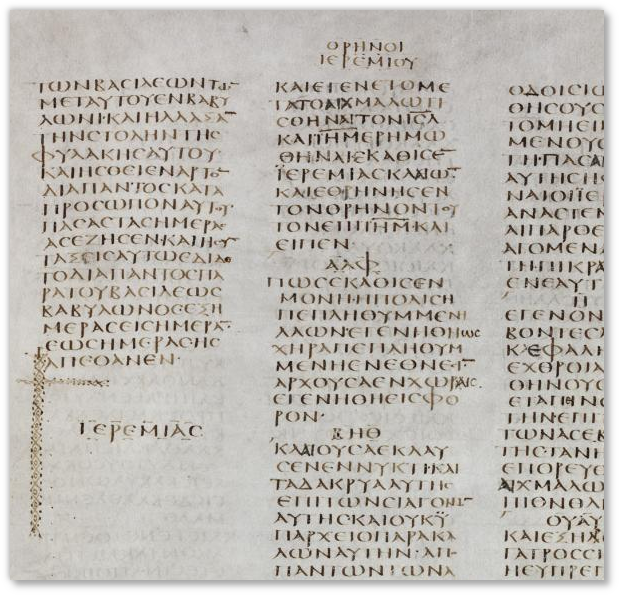The traditional view
As OP notes, Jeremiah was traditionally regarded as the author of the collection of five poems we know as "Lamentations". This claim is already found in the superscription to the Septuagint version (Brenton translation):1
And it came to pass, after Israel was taken captive, and Jerusalem made desolate, that Jeremias sat weeping, and lamented with this lamentation over Jerusalem, and said....
Jeremiah "laments" over God’s impending judgment (Jer 9:10), and instructs his hearers to do the same (Jer 7:29). There is an obvious connection between the weeping prophet (Jer 9:1) and the weeping poet of Lamentations (Lam 2:11; 3:48).
This fairly natural association between Jeremiah and Lamentations was assumed by the medieval rabbinic commentators, as well as throughout the tradition of "pre-critical" Christian commentary.2 It also produced the ordering of books as known from the Greek tradition (only Baruch intervenes), and is found in modern English (Christian) bibles.
Once you have a connection to Jeremiah (assumed or otherwise), yet further links between the laments and Jeremiah may be readily discerned:
...among others.
Consensus challenged
The poems themselves are anonymous, however, and in the Hebrew tradition the book is found among the five Festival Scrolls in the “Writings” (ketuvim) of the Hebrew canon (the others being Ruth, Song of Songs, Ecclesiastes, and Esther), with no immediate connection to the book of Jeremiah, which is among the “Prophets”.
During the 18th and 19th centuries, this factor provided the basis for a re-examination of the authorship of Lamentations.3 Cracks and fissures between between Lamentations and the book of Jeremiah are not hard to find, since the "biographical" elements in particular contain some imcompatible features, if Jeremiah’s authorship is maintained:
- the pit of Lamentations is full of water (Lam 3:54), whereas Jeremiah’s explicitly is not (Jer 38:6b);
- for Jeremiah, Jerusalem had always been vulnerable and at risk, expressed with great clarity in his “temple sermon” (Jer 7:1–14; 26): how could such a one write as if Zion might have been inviolable, the underlying assumption -- cruelly dashed -- in such texts as Lam 1:10; 2:15; 4:12?
- Lamentations appears to condone assistance from foreign nations (4:17; 5:6), but Jeremiah never contemplates such a possibility, and rejects it when it arises;
- further, 2 Chr 35:25 -- which some thought strengthened the case for Jeremianic authorship of Lamentations -- relates rather to the death of Josiah, not to the later fall of Jerusalem.
If not Jeremiah, then who?
Once the connection to Jeremianic authorship has been challenged (or even broken), the question arises as to who the author might have been -- or whether, fact there was more than one poet involved. Older commentators found viable candidates among other apparently contemporary biblical characters: the friends of Daniel, perhaps, or the tragic figure of Jehoiachin. However, there is even less evidence to make these connections than there is in the case of Jeremiah.
Most students of the book today would not feel confident claiming any author for the book which it does not name itself. There is less agreement about whether a single poet is responsible for all five laments, or whether various peculiarities in formal aspects of the poetry suggest two or three (or more!) authors, rather than just one.4 Those inclined to compare this collection of poems to the Psalms, which includes work by many of Israel’s hymn writers, are content to see different authors at work in Lamentations also. On the other hand, Lamentations has a consistency of of tone and outlook -- the variations in poetry notwithstanding -- that means multiple authorship is not "required".
Conclusion
In sum, the book of Jeremiah remains a prime “companion” text for Lamentations, even if the case for Jeremianic authorship is found wanting. The impetus to find multiple authors fails for the same reason: persuasive evidence is lacking. The basis for taking a decision on this question remains slender, so a judgment of who is considered most likely to be the author(s) will vary from reader to reader.
Notes
- For interest's sake, this is how it looks in Codex Sinaiticus:

- One example of each must suffice: Rashi identifies Lamentations with the scroll burned by Jehoiakim (Jeremiah 36); Calvin commences his commentary with a consideration of the book's authorship and defence of Jeremiah as its author.
- Of the 19th C. scholars, both C.F. Keil (as part of his Jeremiah commentary, Eng. trans. 1880, pp. 339-350) and S.R. Driver (in his Introduction, 9th edn, 1913, pp. 461-465, first edition 1891) have thorough explorations of the question as it stood in their day: Keil opts for Jeremianic authorship, Driver refutes it.
- Of the five chapters, the first four are all "alphabetic acrostic" poems, though following different patterns for implementing the "acrostic" - and chapter 5 isn't "acrostic" at all, although it is still 22-lines long (matching the 22 letter length of the "alephbet"). Would a single poet have introduced these kinds of variations?
